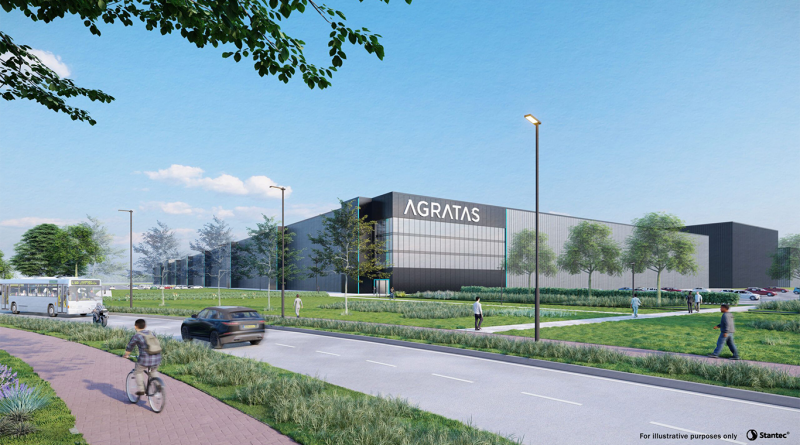£4bn Gigafactory by Tata and McAlpine to Power UK EV industry
The £4bn Agratas gigafactory in Somerset, a groundbreaking project led by Tata Group in partnership with Sir Robert McAlpine, is set to become the UK’s largest battery manufacturing facility dedicated to electric vehicles. This gigafactory is not only a milestone for Tata, the owner of Jaguar Land Rover, but a critical step toward reducing the UK’s dependency on imported EV batteries and advancing the country’s decarbonisation goals. At full capacity, the Bridgwater facility is expected to generate up to 40% of the UK’s EV battery needs by the early 2030s, positioning the nation as a leader in EV technology.
The Agratas gigafactory represents Tata Group’s commitment to EV advancement and sustainable energy. With Sir Robert McAlpine as the main contractor for this project, Tata aims to establish a state-of-the-art battery cell production center that will serve not only Jaguar Land Rover but potentially other manufacturers as well. McAlpine’s choice to bring on NG Bailey and TClarke as MEP (mechanical, electrical, and plumbing) partners highlights a collaborative approach designed to leverage each company’s strengths in complex engineering projects. NG Bailey and TClarke, with decades of expertise in high-stakes infrastructure projects, will be instrumental in meeting the technical demands of the factory, which is planned to open in 2026.
Technical Aspects and Construction Milestones
Covering over 244,000 square meters, the Agratas gigafactory will surpass other UK battery facilities in size and output. McAlpine’s construction of Building One will set the stage for efficient, large-scale production. NG Bailey and TClarke will manage the MEP systems, ensuring that the gigafactory runs efficiently and sustainably, with an emphasis on offsite manufacturing techniques and custom-engineered solutions. With the project expected to ramp up construction efforts by early next year, all three partners are focused on implementing sustainable building practices that align with the UK’s green standards.
The gigafactory’s construction and eventual operation are projected to have a positive economic impact in Somerset and the broader UK, creating approximately 2,100 jobs at peak construction. Tata’s investment in local talent across Tier 3 and Tier 4 suppliers showcases a commitment to revitalising the UK’s industrial base. The project’s emphasis on local sourcing for its complex supply chain is expected to boost economic resilience and provide long-term opportunities in the green energy sector, benefitting a wide range of contractors and suppliers.
Supporting UK’s Green Goals Through Sustainable Manufacturing
One of the core missions of the Agratas gigafactory is to drive the UK’s shift to a lower-carbon economy. With the capacity to produce batteries domestically, the facility will reduce the carbon footprint associated with importing components, helping the UK reduce reliance on foreign battery suppliers.
Tata’s investment aligns with the government’s net-zero goals, which aim to phase out fossil fuel-based cars by 2030. As an essential part of this transition, the Agratas gigafactory will support the growth of renewable energy applications, contributing to the UK’s sustainability goals by providing green, locally produced battery solutions for the automotive and energy storage sectors.
Sources:
- Business Live
- Transport and Energy (image source)
